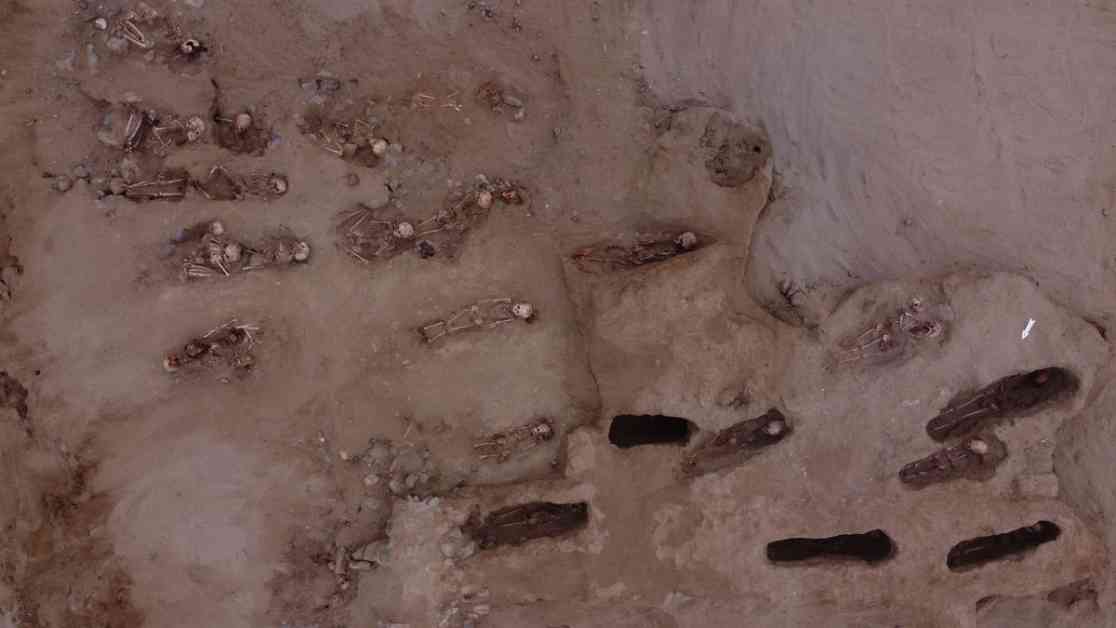A recent discovery at Pampa La Cruz, an archaeological site in Peru, has unearthed a burial mound containing the remains of 76 sacrificed children and two adults. This site is just one of many sacrificial sites found in the region, all connected to the Chimú civilization that thrived in the area from the 12th to 15th centuries.
The children were buried naked with their clothes nearby, and their chests had been cut open, potentially to gain access to their hearts. Within the mound, researchers also found silver and copper squares, ear ornaments, and Spondylus shells, which were highly valued by the Chimú people.
Further analysis of the victims found at the site in 2022 revealed that they had cranial modifications, suggesting they may have been of Lambayeque origin. Isotopic analysis of the victims’ remains also indicated that their diets matched those of the Lambayeque region, leading researchers to believe that they may have been brought to the site by the Chimú to build irrigation systems.
According to Gabriel Prieto, an assistant professor of anthropology at the University of Florida, the children’s burial may have been an offering to energize the fields and strengthen the land for agricultural purposes. The fact that these children were likely not of Chimú heritage may have added an extra layer of value to the sacrifice.
This discovery opens up new avenues for research into the Chimú civilization beyond their ritual practices. The researchers plan to expand their excavations into Chan Chan, the capital of the Chimú civilization, to further investigate the role of sacrificial practices in Chimú society.
In conclusion, the recent findings at Pampa La Cruz shed light on the complex rituals and practices of the Chimú civilization and provide valuable insights into the cultural and religious beliefs of the ancient Peruvian people. The research team’s work continues to uncover new information about this fascinating civilization, offering a glimpse into the past and the lives of those who lived in the region centuries ago.




